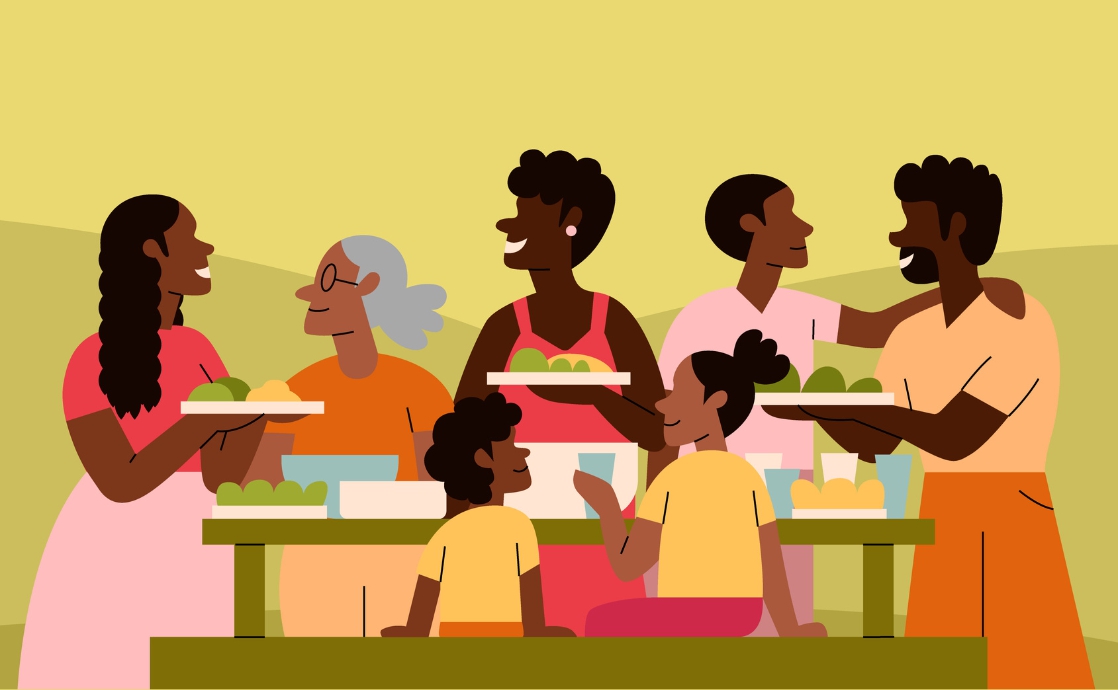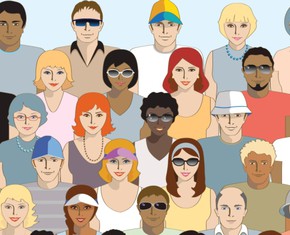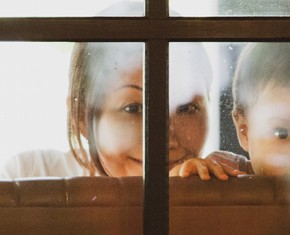The views expressed in our content reflect individual perspectives and do not represent the authoritative views of the Baha'i Faith.
One gloriously sunny September day in northern England, itself a rare occurrence given British weather patterns, I witnessed something I never thought possible.
On the expansive lawn of my neighborhood church, I stood in awe, watching as nearly fifty of my neighbors, young and old, Muslim and Christian, Indian and Pakistani, long-time residents and newly-arrived immigrants, chatted with each other, had their faces painted, and shared a multicultural potluck lunch at a neighborhood festival.
RELATED: Improving Your Neighborhood
Kurdish and English folk musicians jammed together. Children ran around in an impromptu game of Duck, Duck, Goose. People created a banner celebrating unity. Families decorated clay pots and took home strawberry plants to nurture.
All of these people, many of whom had lived in the same neighborhood for years and yet had never met before, were happily engaged in an activity that would ultimately change the world: purposeful community building.
The event: a neighborhood festival. The impetus: Baha’i community building. The root cause: Baha’u’llah’s spiritual principles of love and unity:
The purpose of that which hath been sent down from the heaven of the Will of God in this most exalted, this most holy Revelation, is the unity of the world and love and fellowship among its peoples.
As I explained in my previous article on community building, my neighborhood, or what I’ve experienced of it in my three years here, is one where people tend to shut out the world. They eat, sleep, and relax in their houses, venture out into the world for school or work, and then retreat home once again, all the while rarely saying more than two words to the people who live next to them. This view of home as an impenetrable fortress is not uncommon, particularly in the Western world, where society highly values the qualities of self-sufficiency and independence.
But it’s a view, and a reality, that my family and a couple of friends have been working to change.
Of course, it’s understandable to want a place of retreat. My heart breaks when I watch the news for even five minutes. There seems to be no end to the barrage of violence, famine, war, and the deprivation of human rights — much of it too close to home. Less than two months ago, for instance, violent anti-immigrant riots shook the whole of England, and one such riot, planned for an immigrant services center only a mile from my front door, threatened to spread more hate, disunity, and distrust. People want safety, people want refuge in these difficult times, and the resulting sense of isolation can lead to suspicion of others and a shutting out of the wider world.
But what if, instead of closing our doors and our hearts in an attempt at self-preservation, we open them to those around us? What better way to feel safe and secure in our homes and communities than to get to know our neighbors on a deeper level and build trusting relationships with them? The Universal House of Justice, the democratically-elected global administrative body of the world’s Baha’is, says that in response to the desperate condition of the world, “Heartfelt concern must prompt sustained effort to build communities that offer hope in place of despair, unity in place of conflict.”
That’s how our neighborhood festival came into being. The people who showed up on that Saturday afternoon got a chance to socialize with their neighbors, get their kids out of the house, and enjoy some free food and fun activities. But under the surface, a whole lot more went on. For one thing, we were breaking down barriers in an incredibly diverse neighborhood, with a plethora of ethnicities, religions, and languages represented.
But “they look different than me” is often the first hurdle we have to jump over in our pursuit of unity and social change. At our festival, people of all backgrounds simply came together and talked with one another — the first step in recognizing our common humanity and developing connections with our neighbors.
We chiseled away at another barrier, too — social isolation and a reluctance to engage with others. The idea for a festival started with our “nucleus” of friends, which includes my husband and me, our two young children, and a Baha’i couple who live down the street. As such a small group, we would never have been able to organize a neighborhood festival on our own. Indeed, only a few months ago, even the idea of holding a festival seemed impossibly grand and unrealistic, as we’d had little indication of any desire for engagement from our neighbors. But by gradually having intentional conversations, inviting our neighbors over for a cup of tea and a chat (tea being an essential ingredient in British social interactions), we eventually found half a dozen enthusiastic collaborators who recognized the importance of building community and were willing to help organize a festival. Our nucleus began to expand.
Like any grassroots effort, however, the process has been slow. For more than two years, our nucleus has met weekly in our home to pray together, consult about the needs of the community, and strengthen our friendships.
Sometimes, our efforts bear fruit, and other times, the results are disappointing. One week, we’ll have fifteen children at our neighborhood classes for spiritual education, and the next week, zero. But with each other’s support and encouragement, we carry on, collectively striving to improve the conditions around us. We know that creating a hopeful, united community isn’t something our little group can achieve on its own.
The Universal House of Justice has written, “The task of building a mature, peaceful, just, and united world is a vast undertaking in which every people and nation must be able to participate.” That essential task requires an ever-increasing number of people to take ownership of the spiritual and material growth of their community. We can’t expect others to do it for us, nor can we solve all the world’s problems ourselves.
Indeed, we now see with increasing clarity how some existing institutions and beliefs actively prevent humanity from advancing toward unity and equality. “Old standards of ethics,” the Baha’i teachings explain in a speech given by Abdu’l-Baha, “moral codes and methods of living in the past will not suffice for the present age of advancement and progress.” If we want a peaceful and secure future where everyone feels equally represented and empowered, then we all have to become the protagonists in our own stories of individual and social change.
RELATED: 4 Questions Toward a Unified Neighborhood
Our neighborhood festival took one small step in that direction — but it may look different where you live. Community ownership might be a neighbor bringing a meal to someone who’s just out of the hospital. It might be organizing a service project to pick up litter or paint park benches. It might be creating a WhatsApp group so neighbors can stay in touch. Or it might just be chatting with someone on your street who you’ve never spoken to before. Little steps toward community ownership, when they become frequent and yet sustainable, will add up over time. Your actions should be guided by the needs of your community, your talents and capacities for service, and the rhythm of life in your neighborhood. But regardless of the actions we take, the more we purposefully build community with those around us, the better our future will become.
If the task seems overwhelming at times, know that you’re not alone in wanting to build a better world. Hearts are open, even if their doors aren’t yet.
Remember that anti-immigrant riot which was supposed to bring fear and violence to my neighborhood? Instead of racist agitators setting fires and destroying storefronts, over three thousand people stood together in solidarity to protect their neighbors, holding signs proclaiming peace and unity as the qualities that define our community. Your own nucleus of friends is out there, just waiting for a kind word, an invitation, or a smile. You just have to look. When one enkindled heart reaches another, the Baha’i teachings promise, the flame of love and unity will spread until it illuminates the whole Earth.
















Comments
Sign in or create an account
Continue with Googleor